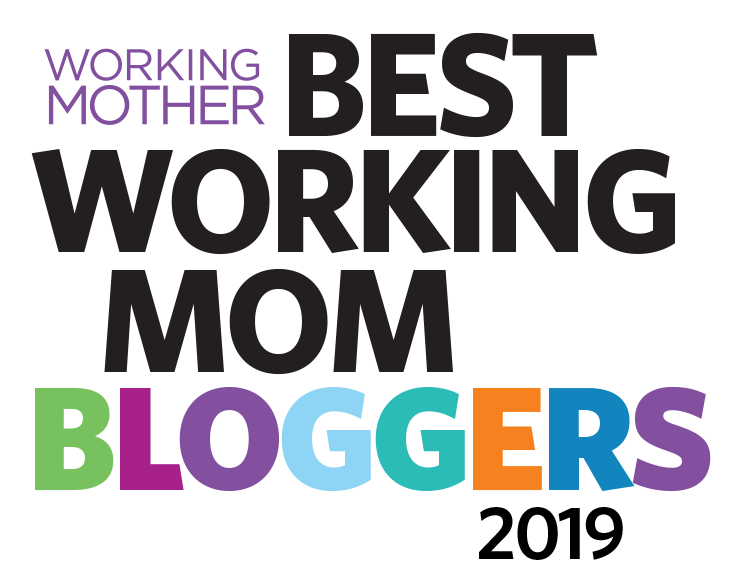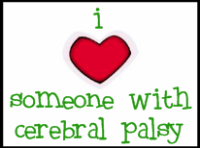This post is by Kevin Metzger, an awesome dad of three trying to do Good Things in this world for kids with cerebral palsy. He blogs over at My Spelling Sucks.
“Mommy you don’t help me as much as you help Haley because I don’t have CP.”
That is a quote from my four-year-old middle child spoken just this morning.
I asked Abby what she meant and how we help Haley more. She is of course correct we do help Haley more. Haley needs to hold our hand in the parking lot, she need our hand going up or down the stairs, she needs extra help with home work, not that Abby has home work yet.
Haley is also very independent so if we are in a situation where she can do the stairs by herself or walk without help she does. Regardless Abby’s observation was a bit sad for us as parents and we had to decide how to handle the situation on the spot.
I asked if she knew why we have to hold Haley’s hand. She did. I asked if she understood why we have to hold Isaac. She did. I ask if she would like us to give mommy a third hand? She did. Mommy asked where we should put that hand. Abby said on mommy’s belly. So now that my wife has agreed to have another arm implanted on her belly I’d like to share about Haley’s book and Let’s Cure CP.
When Haley started first grade she had an encounter with another girl. They were in the bathroom and the girl asked her why she walked funny. Haley was embarrassed and didn't say anything. Then the other girl called her weird.
We knew we had to do something so my mother-in-law came up with the idea of having Haley write a book about CP and everything Haley does. We put the book together in a folder and included some pictures they brought it into the class and read it to them. After reading the completed product I decided to publish the book.
It’s called “I Am Not Weird” and you can purchase it at my web site My Spelling Sucks, an unedited discussion of my ADD and dyslexia and my daughter's CP.
Lets Cure CP (LCCP) is a nonprofit we started in April of 2010. I am one of the board members and the purpose of our organization is to fund research here in the United States that is looking for cures for Cerebral Palsy. That means we are funding Regenerative medicine or Stem Cell research. We are focusing on adult stem cells for two purposes:
• Embryonic Stem Cells are less stable than adult and have the potential to cause cancer.
• There is no point in our organization fighting a political battle when there is strong evidence that adult stem cells can help children with CP.
The two studies LCCP is currently trying to fund are:
• Allogenic: These are donor adult stem cells that come from bone marrow. The cells are treated so that they can be accepted by the recipient without the need to administer immuno suppressive drugs. This study is in it’s first phase of animal testing at the Medical College of Georgia and is being conducted by Dr. Carroll
• Autologous: Autologous cells are adult stem cells that come from the patients own bone marrow. There is no risk of rejection with autologous cells. The first CP patient study will be done in the US by Dr. Cox and Dr. Baumgartner, currently at University of Texas Houston.
In addition to funding these two studies LCCP is doing a series of parent education webinars with the first one taking place Monday, September 12 at 8:00 ET. You can register for the event right on our LCCP Facebook page. This first webinar will explain the basics of stem cell therapies and will be conducted by Cliff Wimborne, a research assistant at the Brain Behavior Discover Institute at Georgia Health Sciences University.
To keep informed about the studies and seminars as well as other LCCP events, join our newsletter at Let's Cure CP and the LCCP Facebook page.












hi ellen
ReplyDeletedo not take this the wrong way but I do not want a cure for CP. OCD yes but CP no i have dealt with it my whole life it is a part of who i am i think it is great trying to help people with CP live to their fullest potential but i do not think curing is a good goal because it means that people with CP are somewhat flawed which is not true food for though
have a nice weekend
While I think the intentions of the nonprofit are wonderful, I have to agree with you about the word "cure", AZ. Thank you for sharing your thoughts from someone who lives life with a disability label.
ReplyDeleteI'm curious if you would know anything on Stem Cells for genetic things? My son has a few problems, all of which are caused from Neurofibromatosis. Could stem cells help with that? Or, because it's genetic, will it be a useless effort?
ReplyDeleteInteresting. Thanks for your insights, Kevin. I'm wondering if you've contacted UCP and what they think about helping with LCCP?
ReplyDeleteAlso, I'm wondering why you're focusing on (extremely expensive) stem cell research when there are very promising therapies out there (such as ABM) that, as these folks have mentioned, don't exactly "cure" CP but offer a path to more independence?
Overall I think it's absolutely wonderful that you've taken the initiative to do this work.
I have to agree about the word cure... it just doesn't sit right with me when applied to CP, I don't know why, maybe because I associate "cure" with diseases, and I don't think of CP as a disease.
ReplyDeleteAs for being the other child, it can be so hard. The worst part for me is that my brother is non-verbal, and too globally affected to use any sort of communication device effectively (and believe me, that's not for lack of trying), so sometimes when he's upset, we just can't find out what's wrong, or what's hurting. 99% of the time, we can work it out pretty quickly because we know him that well, but the other 1% of the time is just the worst feeling in the world.
Hey all,
ReplyDeleteI have tried posting a number of times already and they appear but then seem to disappear. Hopefully this one will stick.
I understand the sentiment that curing might have a connotation that means something is a sickness and CP is not a sickness. I also get the idea that you could imply something is wrong/flawed when using the word cure.
I can assure you that I do not see my daughter as flawed. I do not see one of my oldest friends who is a lawyer in Pa and has CP as flawed. I don't see the Dr. we see in St. Louis who has CP as flawed. Yet all of them have an issue that makes life harder for them than it has to be.
As for my daughter who is eight and has had one surgery so far and is scheduled to have another. A cure administered when she was an infant could have prevented those surgeries. Even today a cure could mean helping with her visual perceptive problems to the point where she may be able to drive. Right now we just don't know if she will be able to. But my daughter is highly functioning and will live a full, successful and independent life regardless of if we find a cure.
But that is just not true for some people afflicted with CP. One of the founders of our organization has a son who is quadriplegic nonverbal. He is learning to communicate with his eyegaze but it is very difficult and John is and will be trapped inside his body for the rest of his life if we don't find a cure.
As for why we are focusing on regenerative medicine, it's because that is the only treatment modality that currently is looking at treating the root of the problem rather than treating the symptoms. Every other treatment out there right now addresses the symptoms not the cause.
We have had some discussions with UCP in the past but they have taken a political stand against stem cell therapy. It is my understanding that there is some new leadership there that might reconsider the regenerative medicine therapies and we hope to work with UCP in the future.
Finally I just want to explain a little more about stem cell therapies. There are 4 kinds cord blood, Allogenic, Autologus, and embryonic. Our organization is supporting research in the first three types. We are avoiding embryonic both for political reasons and because they are still unstable.
To this point cord blood has had the most exposure in the US and has been the most successful however only about 2% of the population saves cord blood.
Autologus therapy is also very promising. It is where stem cells are harvested from the patients own bone marrow. This is great because there is no risk of rejection. However is the patient has an underlying genetic disorder then this therapy will not work.
For patients that have other issues Allogenic therapies are most promising since they take donor cells and treat them to act similarly to O blood so the patient can accept the cells without immune suppression therapy.
To learn more about these therapies and talk about our organizations mission please feel free to join us on the call next week. Sign up at our facebook page.
This comment has been removed by the author.
ReplyDelete